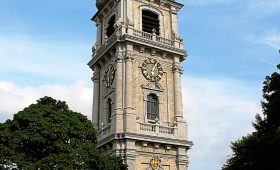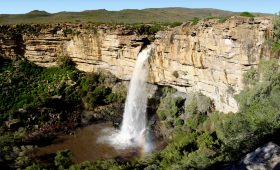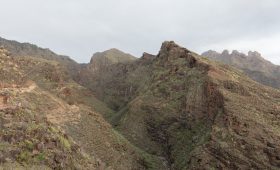About The Pilbara
The Pilbara is a vast and remote region in the northwest of Western Australia, covering over 507,896 square kilometers. It’s larger than California but home to fewer than 62,000 people. This area is rich in history, both geological and cultural, with some of the world’s oldest rocks and significant indigenous heritage. The Pilbara’s economy is driven by mining, with iron ore, oil, and gas being major industries.
Getting There
Reaching The Pilbara is straightforward with several options. Daily flights from Perth to Port Hedland, Karratha, and Newman are available, operated by Qantas and Virgin Australia. These flights cater primarily to the fly-in, fly-out (FIFO) workforce. If you prefer a road trip, two main highways connect Perth to The Pilbara. The North West Coastal Highway and the Great Northern Highway offer scenic routes, though they are long and require careful planning. Bus services by Integrity Coaches are available but expect a journey of 24-36 hours.
Best Time to Visit
The Pilbara has a semi-arid climate with hot summers and mild winters. The ideal time to visit is between April and September when temperatures are more comfortable, ranging from 68 to 86 degrees Fahrenheit. If you’re interested in wildflowers, plan your trip for September or October to see the region in bloom.
Exploring The Pilbara
Once in The Pilbara, there are several noteworthy sites and activities:
Karijini National Park
Karijini National Park is known for its dramatic gorges and waterfalls. Hiking trails lead to stunning views and natural swimming holes. Fortescue Falls is a highlight, offering a refreshing spot to cool off. Bring a camera to capture the park’s rugged beauty.
Burrup Peninsula
The Burrup Peninsula, part of Murujuga National Park, is home to one of the world’s largest collections of petroglyphs. These ancient rock carvings provide insight into the indigenous cultures that have inhabited the area for thousands of years. Guided tours are available to enhance your understanding of these significant artworks.
Millstream Chichester National Park
This park offers a serene escape with its palm-fringed pools and scenic waterways. It’s an ideal spot for camping and swimming, providing a peaceful retreat from the region’s industrial areas.
Dampier Archipelago
The Dampier Archipelago consists of 42 islands, perfect for snorkeling, diving, and fishing. The waters are clear and rich with marine life, including vibrant coral reefs. Boat trips can be arranged from Dampier or Onslow.
Local Transportation
Getting around The Pilbara requires some planning. While public transportation is available in major towns, renting a car is recommended for flexibility. The region’s vastness and the distance between attractions make a vehicle essential. Guided tours are also an option, providing transportation and local expertise.
Additional Insights
The Pilbara’s industrial landscape is a significant part of its identity. While not traditionally scenic, industrial tours offer a fascinating look at the region’s economic backbone. Tours of ports and mining facilities can be arranged through local visitor centers. Remember to bring sturdy footwear and identification for these tours.




